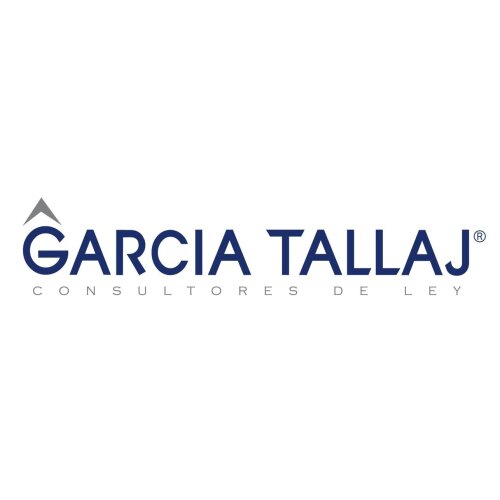Best Private Client Lawyers in Dominican Republic
Share your needs with us, get contacted by law firms.
Free. Takes 2 min.
Or refine your search by selecting a city:
List of the best lawyers in Dominican Republic
About Private Client Law in Dominican Republic
Private Client law in the Dominican Republic encompasses a range of legal services tailored to individuals, families, and business owners managing their personal wealth, assets, and succession planning. This field often includes estate planning, inheritance, tax optimization, wills and trusts, family law matters, and support with immigration and residency for private individuals. Given the intricate interplay between local property law, tax regulations, and international considerations, Private Client law is a critical area for both Dominican nationals and expatriates looking to manage or transfer wealth within the country.
Why You May Need a Lawyer
There are many scenarios where seeking the support of a Private Client lawyer in the Dominican Republic is advisable. Common situations include:
- Drafting or updating a will to ensure your assets are distributed according to your wishes
- Planning for effective inheritance and succession to minimize tax exposure and legal disputes
- Establishing or restructuring trusts and foundations for asset protection
- Resolving family disputes related to inheritance or matrimonial property
- Gaining residency or citizenship by investment
- Selling, gifting, or purchasing real estate with succession planning in mind
- Dealing with cross-border asset and tax considerations if you own assets abroad
- Complying with local and international tax regulations
- Handling the affairs of incapacitated persons, including guardianship or power of attorney
Consulting a qualified lawyer is essential to navigate these matters efficiently while protecting your rights and financial interests.
Local Laws Overview
The Dominican Republic has its own civil law framework that impacts Private Client matters. Key local laws and principles include:
- The Civil Code governs personal status, family law, wills, and successions. Forced heirship rules limit the ability to freely distribute assets.
- Inheritance tax applies to assets transferred at death, but rates and exemptions can vary depending on the value and the relationship of heirs to the deceased.
- Foreigners may own property and can create local wills for Dominican assets. However, cross-border succession planning requires careful coordination to avoid conflicts between jurisdictions.
- Marital property regimes decide how assets are divided on separation or death. Pre-nuptial agreements need to be legally compliant to be enforceable.
- Local regulations govern trusts, though this is a developing area in Dominican law. Foundations are commonly used for wealth structuring and inheritance.
- Tax regulations set specific reporting and payment obligations that can impact private wealth, especially for large estates or foreign asset holders.
Adhering to these legal frameworks is crucial to valid estate planning, asset protection, and the avoidance of costly disputes.
Frequently Asked Questions
What is forced heirship and how does it affect my estate planning?
Forced heirship is a legal principle in the Dominican Republic that guarantees a portion of your estate to be reserved for close relatives, such as children and spouse. You cannot freely distribute your entire estate, and certain heirs are legally protected from being disinherited.
Can foreigners purchase and inherit property in the Dominican Republic?
Yes, foreigners have the same rights as Dominican citizens regarding property ownership and inheritance. However, proper legal documentation and tax compliance are necessary.
Do I need to have a local will in the Dominican Republic?
While foreign wills can be recognized, a will drafted according to Dominican law is recommended for assets located in the country to ensure efficient probate and minimize disputes.
What taxes apply to inheritance in the Dominican Republic?
Inheritance tax, known locally as the “Impuesto sobre Sucesiones,” applies to the transfer of assets upon death. Rates and exemptions depend on the value of the estate and the relationship of heirs. Proper planning can help reduce tax liabilities.
What is the process for probate in the Dominican Republic?
Probate involves registering the death, collecting documentation, liquidating the estate, paying taxes, and distributing the assets to heirs. The process is administered by the local courts and involves several legal procedures.
Are trusts recognized under Dominican law?
Trusts are a relatively new and evolving area in Dominican law. While their use is limited, private foundations and certain types of trusts can be established for asset management and estate planning, subject to specific requirements.
How can a lawyer help with family disputes over inheritance?
A lawyer can mediate disputes, ensure legal compliance, represent clients in negotiations or court, and help find amicable solutions that respect the rights of all parties.
What is the best way to protect my assets in the Dominican Republic?
Asset protection strategies may include creating foundations, dividing ownership, drafting enforceable wills, and ensuring compliance with tax and property laws. Tailored advice from a legal professional is essential.
What are the residency options for private individuals in the Dominican Republic?
The Dominican Republic offers residency and citizenship programs, including options for investors, retirees, and those with family ties. Legal assistance ensures the process is smooth and fulfills all requirements.
How do I begin the process of creating a will or estate plan in the Dominican Republic?
You should seek the help of a qualified lawyer who will review your objectives, analyze your assets and family situation, and draft legally compliant documents specific to Dominican law.
Additional Resources
For more information and support on Private Client legal matters in the Dominican Republic, consider these resources:
- Dominican Republic Bar Association (Colegio de Abogados de la República Dominicana) - Offers information on finding qualified lawyers
- General Directorate of Internal Revenue (Dirección General de Impuestos Internos) - Provides tax information relevant to inheritance and private wealth
- Ministry of Justice (Procuraduría General de la República) - Oversees notarial and succession proceedings
- Local notaries and public registries - Key roles in estate documentation and property transfers
- Private client law firms and estate planning specialists - For professional legal advice and support
Next Steps
If you require legal assistance with any private client matters in the Dominican Republic, here are the essential steps to follow:
- Identify and consult an experienced private client or estate planning lawyer familiar with Dominican law
- Gather all relevant documentation, including property titles, identification, previous wills, and financial information
- Discuss your goals and concerns openly to allow your lawyer to provide tailored advice
- Ensure any documents you draft or sign are verified by a qualified notary and registered in accordance with local regulations
- Review your estate plan and legal arrangements regularly, especially after major life events such as marriage, divorce, or acquiring significant assets
- Consider integrating cross-border advice if you hold assets or have family members abroad
A proactive approach and professional guidance are key to ensuring your personal, family, and financial interests are effectively protected under Dominican law.
Lawzana helps you find the best lawyers and law firms in Dominican Republic through a curated and pre-screened list of qualified legal professionals. Our platform offers rankings and detailed profiles of attorneys and law firms, allowing you to compare based on practice areas, including Private Client, experience, and client feedback.
Each profile includes a description of the firm's areas of practice, client reviews, team members and partners, year of establishment, spoken languages, office locations, contact information, social media presence, and any published articles or resources. Most firms on our platform speak English and are experienced in both local and international legal matters.
Get a quote from top-rated law firms in Dominican Republic — quickly, securely, and without unnecessary hassle.
Disclaimer:
The information provided on this page is for general informational purposes only and does not constitute legal advice. While we strive to ensure the accuracy and relevance of the content, legal information may change over time, and interpretations of the law can vary. You should always consult with a qualified legal professional for advice specific to your situation.
We disclaim all liability for actions taken or not taken based on the content of this page. If you believe any information is incorrect or outdated, please contact us, and we will review and update it where appropriate.
Browse private client law firms by service in Dominican Republic
Dominican Republic Attorneys in related practice areas.
Browse private client law firms by city in Dominican Republic
Refine your search by selecting a city.














